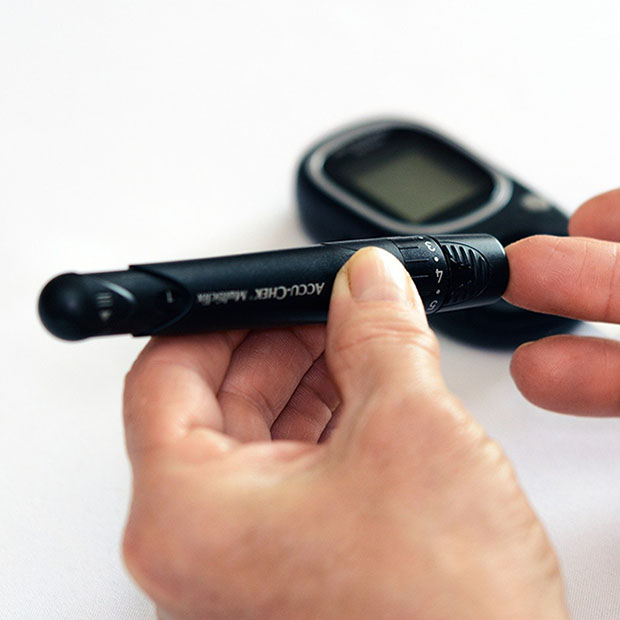Diabetes and Our Teeth

Diabetes, whether type 1, 2, or even gestational, makes it more difficult to maintain good dental health.
There is a reciprocal relationship between oral health and diabetes, meaning that it’s harder to keep your teeth and gums healthy if you aren’t carefully managing the diabetes, but the diabetes also becomes harder to control if you aren’t prioritizing oral health.
An Overview of the Types of Diabetes
All three types of diabetes impact oral health, but they work in different ways. Type 1 diabetes is usually diagnosed early in life, and it involves the pancreas being unable to produce insulin. Type 2 diabetes (up to 95% of cases) is usually diagnosed decades into adulthood, and it involves the body failing to use insulin efficiently to regulate blood sugar. Gestational diabetes affects some pregnant women, who become less able to regulate blood sugar during pregnancy.
What Does Blood Sugar Have to Do With Oral Health?
Sugar is very harmful to teeth and gums because it’s what oral bacteria love to eat. Sugar in the bloodstream is also a problem, which is where diabetes comes in. High blood sugar is rough on the immune system and makes it hard for the body to fight back against pathogens — including oral bacteria. It leaves diabetic patients more vulnerable to oral inflammation and tooth decay.
Gum Disease and Diabetes
Over 20% of diabetics develop a form of gum disease anywhere from the early stages of inflammation (gingivitis) to advanced gum disease (periodontitis) that threatens the teeth, the gums, and even the supporting bone. Untreated gum disease can take a toll on overall health and even become life-threatening if the bacteria reach the bloodstream.
Gum disease symptoms to watch for include chronic bad breath, the gums becoming swollen, red, and prone to bleeding, receding gums, and loosening of the teeth. Any one of these symptoms could indicate poor gum health, and diabetes increases the risk of other problems such as slower healing, worse and more frequent infections, dry mouth, enlarged salivary glands, fungal infections, and burning mouth syndrome.
Diabetes Can Complicate Orthodontic Treatment
No matter what’s causing it, gum disease can present a challenge for orthodontic treatment. Parents of kids with type 1 diabetes should take extra care to help them keep their diabetes under control and to promote good oral health. Then, if they need braces, their treatment will be able to go forward and they will be able to enjoy the benefits of properly aligned teeth.
Controlling Diabetes Leads to Better Oral Health Outcomes
Diabetes adds a complication to many elements of daily life, but it is perfectly possible to reach and maintain good oral health while diabetic. Good oral hygiene habits like daily flossing, twice-daily brushing with fluoride toothpaste and a soft-bristled toothbrush, and regular dental checkups are all essential. So is being careful with sugar intake!
The Dentist Can Help You Fight Diabetes!
Regular dental exams are essential for everyone, but especially for anyone with diabetes. The early signs of a dental problem aren’t always obvious to people who don’t work in the dental field. The sooner they can be caught by a dentist, the easier it will be to deal with them. Your physician can also work with your dentist towards the shared goal of managing your diabetes as well as your oral health. That’s why it’s so important to keep both of them in the loop!
